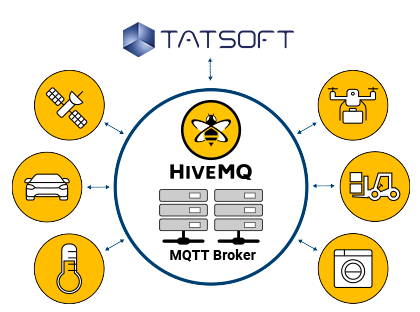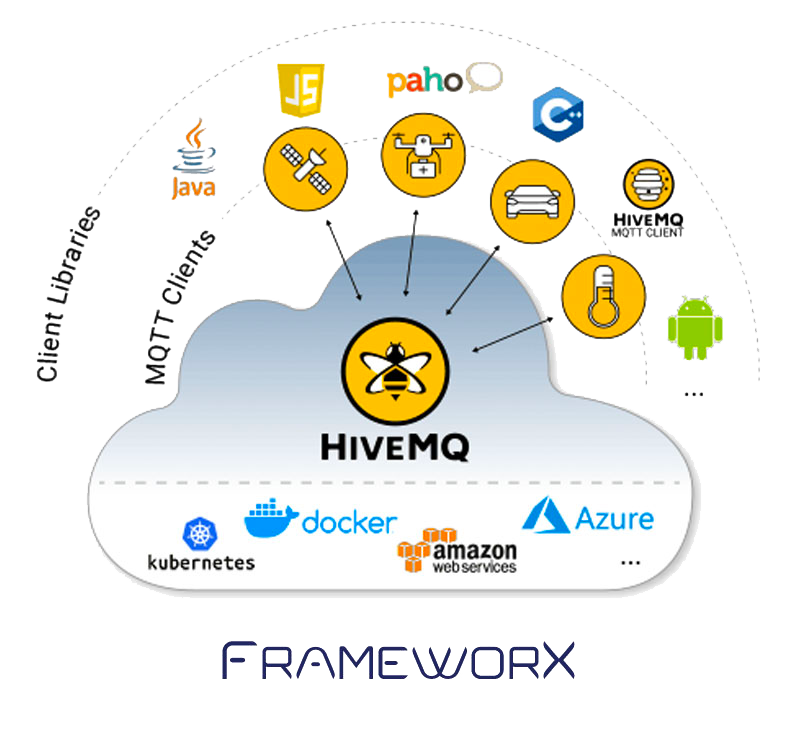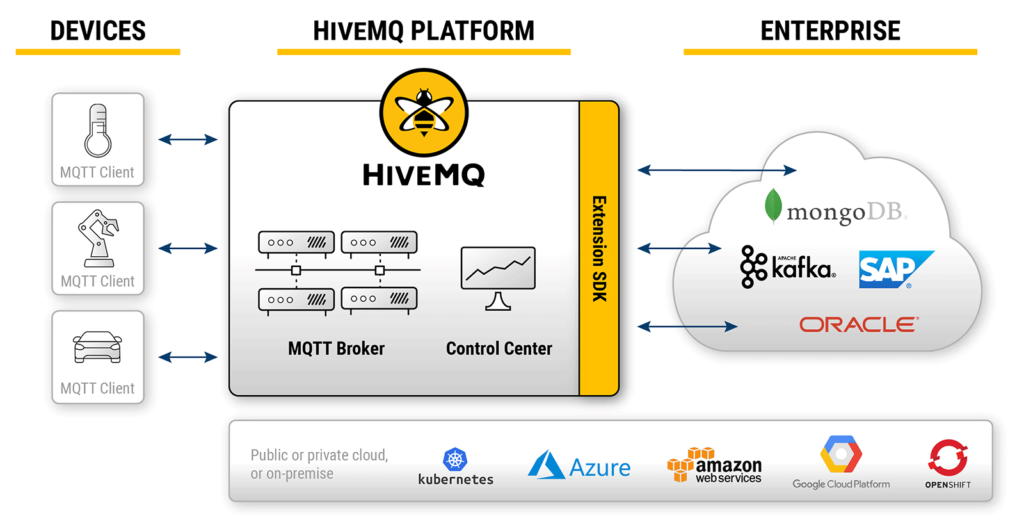Tatsoft and HiveMQ
New Partnership and Product Offering with HiveMQ
As your applications grow or you want the benefit and support of a scalable enterprise class MQTT Broker, our new product offering bundles multiple levels of HiveMQ’s MQTT Broker technology with Tatsoft FrameworX products
The Tatsoft HiveMQ product offering includes HiveMQ’s MQTT broker and it’s client-based messaging platform designed for the fast, efficient and reliable movement of data to and from connected IIoT devices. It uses the MQTT protocol for instant, bi-directional push of data between your device and your enterprise systems.
HiveMQ Demo System Included
Now, you get a bundled Tatsoft HiveMQ subscription license with any Tatsoft product, from Edge to Unlimited, and get:
25 MQTT Clients included in Tatsoft FrameworX installation
Upgrade to multiple configurations:
HiveMQ Industrial Edge - Basic Edition
250 MQTT Clients
HiveMQ Industrial Edge - Premier Edition
1000 MQTT Clients
HiveMQ Professional Edition
Unlimited Clients
The integration with HiveMQ is the perfect solution for high performance and reliable deployment of IIOT solutions!
- Marc Taccolini, Founder and CTO
Join The Industrial Internet Of Things with HiveMQ
Tatsoft’s FrameworX combined with HiveMQ is built to address some of the key technical challenges organizations face when building new Industrial Internet of Things applications, including:
- Building reliable and scalable business critical IIoT applications
- Fast data delivery to meet the expectations of end users for responsive IIoT products
- Lower cost of operation through efficient use of hardware, network and cloud resources
- Securely Integrating IIoT data into existing enterprise systems
- Connecting to Industrial Devices and Modeling your Data
Connect to your real-time devices with MQTT.
In an IIoT world, connecting industrial devices from different vendors to backend applications is a major challenge. It requires a lot of engineering effort to connect these devices. Open IIoT communication protocol, like MQTT Sparkplug, can enable such systems to seamlessly exchange information with no programming at all. Even better, MQTT Sparkplug allows these systems to automatically discover each other.
Webinar: Designing an Edge to Cloud Architecture for IIoT
In this webinar, experts from Tatsoft and HiveMQ discussed the key components of a modern edge to cloud IIoT architecture, identified key challenges to its implementation, and demonstrated Tatsoft’s recent product release of FrameworX, which includes support for MQTT and Sparkplug.
Tatsoft and HiveMQ Unified Namespace




